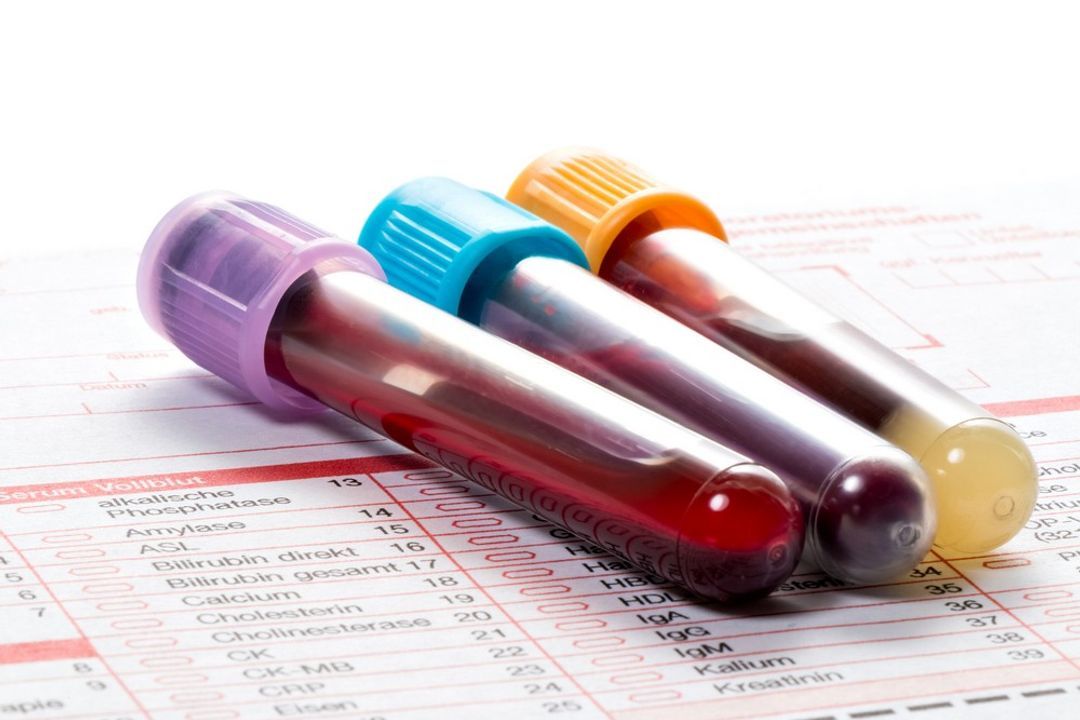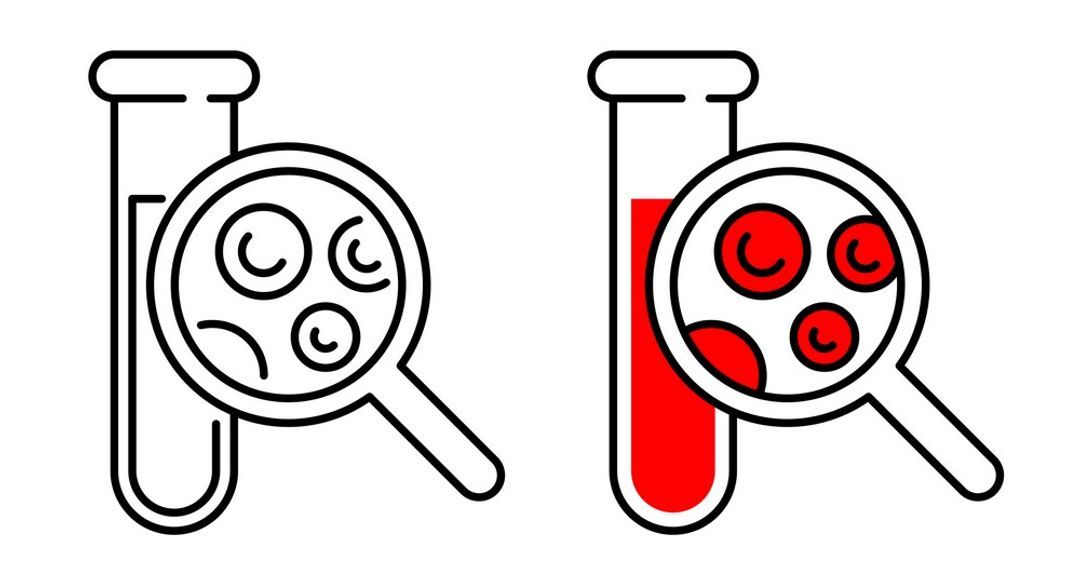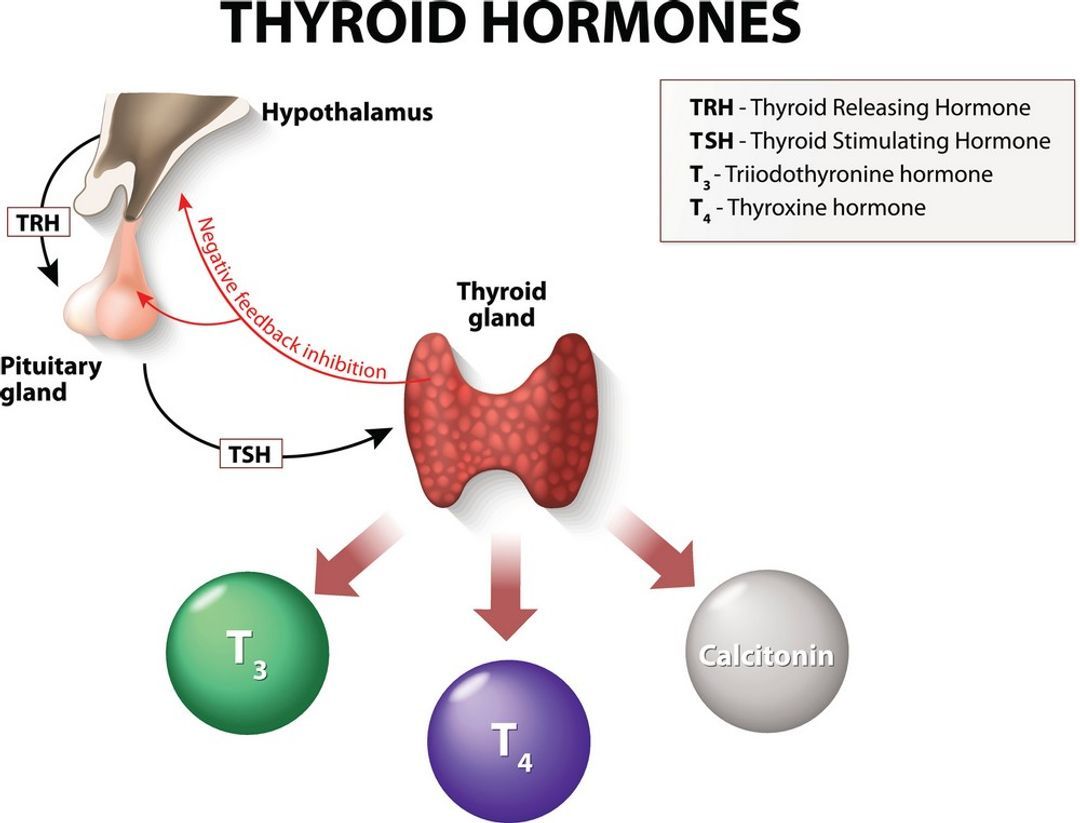Blood Tests for Longevity: A Comprehensive Guide
What are the most important blood tests for health and longevity? Are blood tests for longevity accurate? Click here for the best blood tests for health.
The quest for a long and healthy life has fascinated humans since time immemorial. As the global population continues to age and life expectancies rise, the significance of understanding and promoting longevity has become increasingly important.
Medical advancements in recent years have contributed to a greater understanding of the factors that influence longevity, providing valuable insights into the role of genetics, lifestyle and environmental factors. One crucial area of study that has emerged in the pursuit of enhanced well-being and longevity involves blood tests.
Blood tests provide a wealth of information about an individual's health and have been used in medical practice for many years. They can offer valuable insights into an individual's overall health by examining the various components in the blood, such as red and white blood cells, platelets and plasma.
Furthermore, specific blood tests can assess an individual's risk of developing chronic diseases, monitor the progression of existing conditions and guide healthcare professionals in tailoring personalised treatment plans.
This article delves into the most important blood tests, their accuracy, and how they can be utilised to improve health and promote longevity. We will examine the information a full blood workup provides, the importance of regular blood testing, and the best blood tests for overall health and longevity.
What Can Longevity Blood Tests Tell You about Your Health?
Longevity blood tests provide valuable information about an individual's health by assessing various biomarkers associated with ageing, overall well-being and the risk of developing age-related diseases.
These tests can offer insights into an individual's current health status and potential for a long and healthy life. Some key aspects of health that longevity blood tests can reveal include:
 Nutrient levels
Nutrient levels
Blood tests can identify deficiencies or imbalances in essential nutrients, such as vitamins, minerals and trace elements, impacting overall health and longevity.
Inflammation
Chronic inflammation has been linked to numerous age-related diseases, including cardiovascular disease, diabetes and Alzheimer's disease. Longevity blood tests often include markers of inflammation, such as C-reactive protein (CRP), to provide insights into an individual's inflammatory status.
Hormone levels
Hormones play a vital role in regulating various body functions, and imbalances can have a significant impact on ageing and overall health. Longevity blood tests may assess hormone levels, such as thyroid hormones, cortisol and insulin, to provide a better understanding of an individual's hormonal health.
Metabolic health
Blood tests can assess an individual's metabolic health by measuring components such as glucose, lipids, and liver and kidney function markers. These tests can help identify potential risk factors for metabolic diseases, such as diabetes or cardiovascular disease, which can impact longevity.
Cellular health
Some longevity blood tests may include markers of cellular health, such as telomere length, which can provide insights into an individual's biological age and potential for healthy ageing. Telomeres are protective caps at the ends of chromosomes that shorten with each cell division, and their length has been associated with ageing and age-related diseases.
Why Are Comprehensive Blood Tests Important for Longevity?
By evaluating the above-mentioned biomarkers, longevity blood tests can offer a comprehensive assessment of an individual's health and identify potential risk factors for age-related diseases early. This information can help guide targeted interventions and promote a longer, healthier life.
Here are some key reasons why longevity blood tests are important:
 Early detection of diseases
Early detection of diseases
Longevity blood tests can reveal early signs of health issues, such as inflammation, hormonal imbalances or nutrient deficiencies. Identifying and addressing these issues promptly can help prevent the development or progression of chronic conditions and improve overall health.
Identifying nutrient deficiencies
Blood tests can reveal deficiencies in essential nutrients, such as iron, vitamin D or vitamin B12, enabling individuals to make dietary changes or take supplements to address these imbalances.
Personalised interventions
By providing detailed information about an individual's unique biochemistry and health status, longevity blood tests can help healthcare professionals tailor personalised treatment plans and lifestyle recommendations. This targeted approach can lead to more effective interventions and improved health outcomes.
Monitoring health and progress
Regular longevity blood tests can help individuals track their health over time, allowing them to monitor the effectiveness of lifestyle changes, dietary adjustments or medical interventions. This ongoing assessment can provide motivation and evidence-based feedback and inform adjustments to health strategies as needed.
Prevention and risk reduction
Understanding one's risk factors for age-related diseases enables individuals to take proactive steps towards reducing those risks. Longevity blood tests can highlight potential areas of concern, such as high cholesterol or elevated blood sugar levels, allowing individuals to make informed decisions about lifestyle changes, dietary modifications or medical treatments to mitigate their risk of developing chronic conditions.
Promoting healthy ageing
By assessing various aspects of an individual's health related to the ageing process, longevity blood tests can help guide interventions aimed at promoting healthy ageing. This can include addressing inflammation, supporting hormonal health and ensuring optimal nutrient levels, collectively contributing to a longer, healthier life.
Are Blood Tests Accurate?
Blood tests for longevity are generally considered accurate and reliable when conducted by reputable laboratories using validated testing methods. However, the accuracy of blood tests can be influenced by several factors, including sample handling, laboratory procedures and the presence of interfering substances.
 To ensure the accuracy of longevity blood tests:
To ensure the accuracy of longevity blood tests:
Follow pre-test guidelines: Adhering to pre-test instructions, such as fasting or avoiding certain medications, as advised by healthcare professionals, can help minimise inaccuracies and ensure reliable results.
Choose a reputable laboratory: Opt for a laboratory that adheres to strict quality control measures and uses validated testing methods to ensure accurate and consistent results.
Consult with healthcare professionals: It is worth noting that while blood tests can provide valuable information, they should not be viewed as a definitive diagnostic tool in isolation. Discuss your test results with a healthcare professional who can help interpret the data and consider additional factors, such as your medical history, physical examination and other diagnostic tests, to form a comprehensive understanding of your health.
What Are the Best Blood Tests for Overall Health and Longevity?
 Full blood test panel
Full blood test panel
A full blood test, also called a complete blood count (CBC), is a comprehensive analysis of the various components in the blood. These include red blood cells, white blood cells, platelets and plasma. A CBC provides valuable information on various aspects of an individual's health and can help identify potential issues that may impact their well-being.
Lipid profile
This test measures levels of total cholesterol, high-density lipoprotein (HDL) cholesterol, low-density lipoprotein (LDL) cholesterol and triglycerides, providing insights into an individual's risk for cardiovascular disease (CVD). Maintaining healthy lipid levels is essential for reducing the risk of heart disease and promoting longevity.
Glycated haemoglobin (HbA1c)
 This test provides a long-term view of blood sugar levels and is useful for diagnosing and monitoring diabetes, a condition linked to reduced life expectancy. Maintaining optimal blood sugar levels can help prevent complications related to diabetes and support overall health.
This test provides a long-term view of blood sugar levels and is useful for diagnosing and monitoring diabetes, a condition linked to reduced life expectancy. Maintaining optimal blood sugar levels can help prevent complications related to diabetes and support overall health.
C-reactive protein (CRP) and other inflammatory markers
Elevated CRP levels can indicate systemic inflammation, which has been associated with numerous chronic diseases and reduced longevity. Other inflammatory markers, such as interleukin-6 (IL-6) and tumour necrosis factor-alpha (TNF-alpha), can provide additional insights into an individual's inflammatory status.
Vitamin D and other essential nutrient levels
Low vitamin D levels have been linked to various health issues, including bone disorders, cardiovascular disease and impaired immune function. Regular testing of vitamin D, along with other essential nutrients like iron, vitamin B12 and magnesium, can help ensure that individuals maintain optimal levels of these crucial elements for overall health.
Comprehensive metabolic panel (CMP)
This panel of tests measures various components in the blood, including glucose, electrolytes, kidney and liver function markers, and blood proteins, providing a broad overview of an individual's metabolic health. Monitoring these markers can help identify potential risks for metabolic disorders and support overall well-being.
 Hormone profile
Hormone profile
Hormones are crucial in regulating various body functions, and imbalances can impact overall health and longevity. Tests that measure hormones such as cortisol, thyroid hormones, insulin and sex hormones can help identify hormonal imbalances that may affect ageing and disease risk.
Oxidative stress markers
Oxidative stress occurs when there is an imbalance between the production of free radicals and the body's ability to neutralise them. High levels of oxidative stress have been linked to ageing and various chronic diseases. Blood tests for oxidative stress markers, such as malondialdehyde (MDA) and glutathione, can help assess an individual's oxidative stress levels and guide interventions to promote optimal health.
Homocysteine levels
Elevated homocysteine levels have been associated with an increased risk of cardiovascular disease, stroke and cognitive decline. Testing homocysteine levels can help identify potential risks and guide interventions to reduce these levels, such as supplementation with B vitamins.
 Thyroid function tests
Thyroid function tests
Thyroid hormones play a vital role in metabolism, energy levels and overall well-being. Blood tests that measure thyroid-stimulating hormone (TSH), free thyroxine (FT4) and free triiodothyronine (FT3) can help assess thyroid function and identify potential issues, such as hypothyroidism (underactive thyroid) or hyperthyroidism (overactive thyroid), that may impact overall health and longevity.
Kidney function tests
Healthy kidney function is crucial for maintaining overall health, as the kidneys are responsible for filtering waste products and regulating electrolyte balance. Blood tests that measure creatinine and blood urea nitrogen (BUN) levels, along with glomerular filtration rate (GFR), can provide insights into kidney function and potential risks for kidney-related disorders.
Liver function tests
The liver is critical in detoxification, metabolism and nutrient storage. Blood tests that assess liver enzymes, such as alanine aminotransferase (ALT), aspartate aminotransferase (AST), alkaline phosphatase (ALP) and bilirubin levels, can help identify potential liver issues that may impact overall health and longevity.
Apolipoprotein levels
Apolipoprotein A1 (ApoA1) and apolipoprotein B (ApoB) are protein components of HDL and LDL cholesterol, respectively. Measuring the levels of these proteins can provide additional information about an individual's risk of developing cardiovascular disease and inform targeted interventions to promote heart health.
Brain-derived neurotrophic factor (BDNF)
 BDNF is a protein that supports the growth and survival of neurons, playing a crucial role in cognitive function and mood regulation. Measuring BDNF levels in the blood can provide insights into an individual's brain health and potential risk factors for neurodegenerative disorders, such as Alzheimer's disease.
BDNF is a protein that supports the growth and survival of neurons, playing a crucial role in cognitive function and mood regulation. Measuring BDNF levels in the blood can provide insights into an individual's brain health and potential risk factors for neurodegenerative disorders, such as Alzheimer's disease.
Conclusion
Blood tests for longevity play a pivotal role in assessing an individual's overall health, potential risk factors for age-related diseases, and the likelihood of a long and healthy life.
By examining various biomarkers associated with ageing, inflammation, metabolism, hormonal balance and nutrient status, these tests offer valuable insights into an individual's unique biochemistry and health profile.
This information can guide personalised interventions, such as lifestyle modifications, dietary adjustments and medical treatments, to promote healthy ageing and improve life expectancy.
Take Control of Your Health with GlycanAge
In addition to the tests mentioned earlier, GlycanAge is a cutting-edge blood test that focuses on assessing biological age through analysing glycans, complex sugar molecules that modify proteins and lipids in the body.
These molecules are involved in various biological processes, including immune response, inflammation and cellular communication. Research has shown that the composition of glycans can change with age, making them potential biomarkers for ageing and age-related diseases [1].
 GlycanAge provides insights into an individual's biological age (the age of cells and organs), which can differ from their chronological age (the number of years since birth).
GlycanAge provides insights into an individual's biological age (the age of cells and organs), which can differ from their chronological age (the number of years since birth).
By comparing biological age with chronological age, individuals can gauge how well they are ageing and whether they need to make any lifestyle changes to improve their health. Furthermore, GlycanAge can provide information about an individual's risk of developing age-related diseases, allowing for targeted interventions and preventive measures.
This test can benefit individuals interested in understanding their biological age and proactively managing their health. It can be particularly useful for those with a family history of age-related diseases, individuals experiencing unexplained health issues, or those seeking to optimise their health and well-being as they age.
Once you’ve ordered your home testing kit, all you need is to provide a small blood sample and mail it back to the lab for analysis. It’ll take three to five weeks to complete comprehensive tests and return a personalised report on your results.
You will also receive complimentary one-to-one consultations with a scientist and/or healthcare professional to understand your results and make a plan to improve your overall wellness as you get older.
With various price points and payment plans available, there is an option to suit each person who wants an accurate, reliable and affordable way to determine their health state. Start your wellness journey today by ordering your GlycanAge home testing kit.
Reference
- https://pubmed.ncbi.nlm.nih.gov/24325898/


